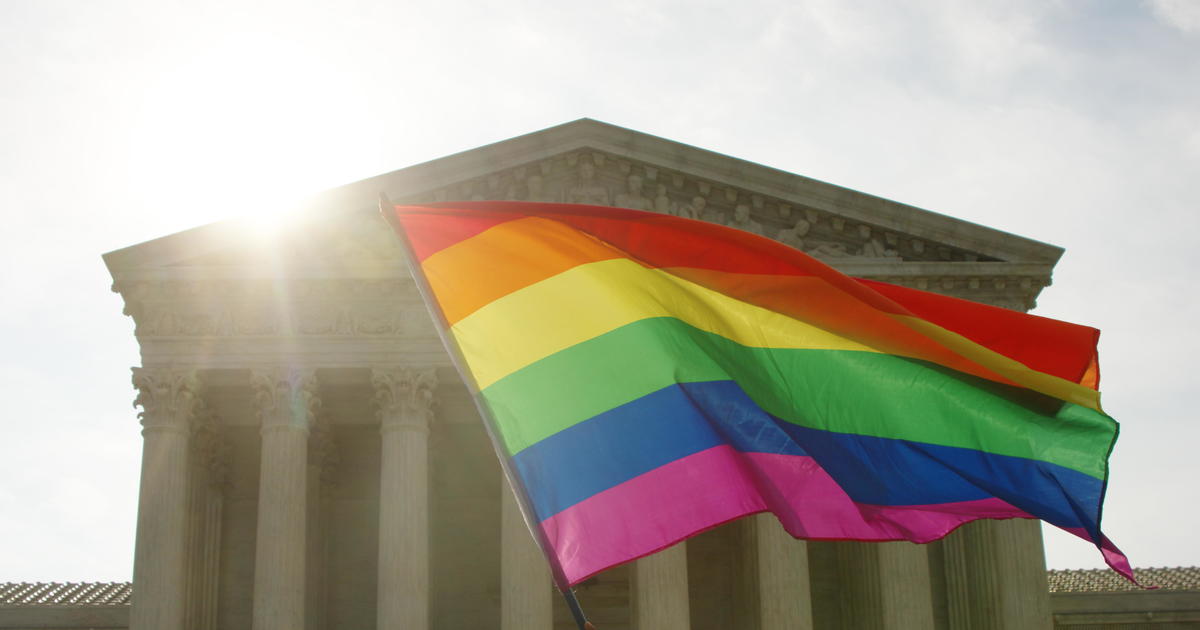Sexual orientation protections dropped from South Carolina hate crime bill
A hate crimes bill in South Carolina no longer protects gay or transgender people after a Republican leader said including them would likely lead members of his party to withdraw their support.
A House subcommittee on Thursday passed an amendment removing sexual orientation, creed, gender, age and ancestry from the bill. The measure now includes just six protected groups, all of which have long been included in federal law: race, color, religion, sex, national origin and physical or mental disability.
Supporters of the bill as originally written questioned the worth of a hate crimes law that doesn't include gay and transgender people, who they say are among those most in need of protection.
"The mere fact in 2021 there is any disagreement on whether gays should be included in a hate crime bill is indicative of why we need the bill," said Democratic Rep. Justin Bamberg.
Backers of the bill also bemoaned the fact that it has taken the state so long to pass any hate crime measure. It has been nearly six years since a self-declared white supremacist gunned down nine Black parishioners at Emanuel AME church in Charleston.
South Carolina is one of only three states — along with Arkansas and Wyoming — without a hate crimes law and the state's powerful business community has said the lack of protection could stop expansions and new companies.
The decision stunned LGBTQ groups, which had been encouraged by the bill's progress.
"The FBI has stated that hate crimes against LGBTQ people are on the rise and if we can't count on our representatives to pass a hate crime bill that actually includes one of the communities most impacted by hate-motivated crimes, then what's the point of this bill?" said Chase Glenn, the executive director of the South Carolina Alliance For Full Acceptance.
The Anti-Defamation League, which had supported the initial version of the bill, said in a statement the group is "appalled" by the "harmful and discriminatory" amendment.
"Taking out sexual orientation and gender is leaving large swaths of people out of hate crimes protections, including the entire LGBTQ-plus community, who would no longer be protected," Allison Padilla-Goodman, vice president of ADL's Southern Division, told CBS News.
Padilla-Goodman said the ADL and other advocates would push for the protections to be added back to the bill as it moves to the full House judiciary committee next week. House Judiciary Chairman Chris Murphy said protections for gay and transgender people could be restored as the legislation heads through the rest of the House or the Senate.
Murphy and Republican subcommittee Chairman Weston Newton said they understand the reasons for including sexual orientation in the bill. But they said they needed to get as much Republican support as they could quickly. It is difficult to pass any bill that doesn't have wide support unless it has passed in at least one chamber by April 8.
"The goal is to get a bill we're going to be able to pass," said Murphy, a Republican from Summerville.
Newton said the amended hate crimes bill may provide more protection than it appears after justices in a 2020 U.S. Supreme Court ruling from Georgia determined discrimination because of sex includes sexual orientation or gender identity.
But bill sponsor Beth Bernstein said that decision was not clear cut and may require the South Carolina Supreme Court to agree to the broader definition.
"This is just disappointing," said the Columbia Democrat, who has worked for months to carefully craft the bill, including by holding public hearings last summer that tried to be as inclusive as possible.
Another version of a hate crimes bill introduced in the Senate includes protections for victims targeted because of their sexual orientation. The bill's sponsor, Democratic Sen. Darrell Jackson, told CBS News he has been pushing to pass some version of the bill in South Carolina for more than two decades.
Jackson said having a hate crime law on the books in South Carolina would act as a deterrent to someone who might otherwise target someone because of bias.
"This person would think, 'You know what, there could be some enhanced penalties for this -- it's not just going to be a slap on the wrist, I could go away for several years,'" Jackson said.
Jackson said he does not support the dropping of sexual orientation protections from the House bill, and believes it will make its passage more difficult.
Republicans gained two House and three state Senate seats in 2020 elections, and the rightward shift has been impossible to miss in this legislative session. A law that would likely ban almost all abortions was passed after years of attempts, but is held up in court. A bill banning transgender students from playing sports on girls teams in middle and high schools is getting hearings. And the House is likely to take up a proposal to allow people to openly carry guns.
Conservatives worried the hate crimes bill might be used against religious groups who oppose homosexuality or abortion.
Supporters agreed Thursday to remove civil penalties and include a clause that the hate crime penalty couldn't exceed the penalty for the original crime. The bill would add up to five years in prison for someone convicted of a murder, assault or other violent crime fueled by hate, three years for stalking or harassment and an extra year behind bars for vandalism.




